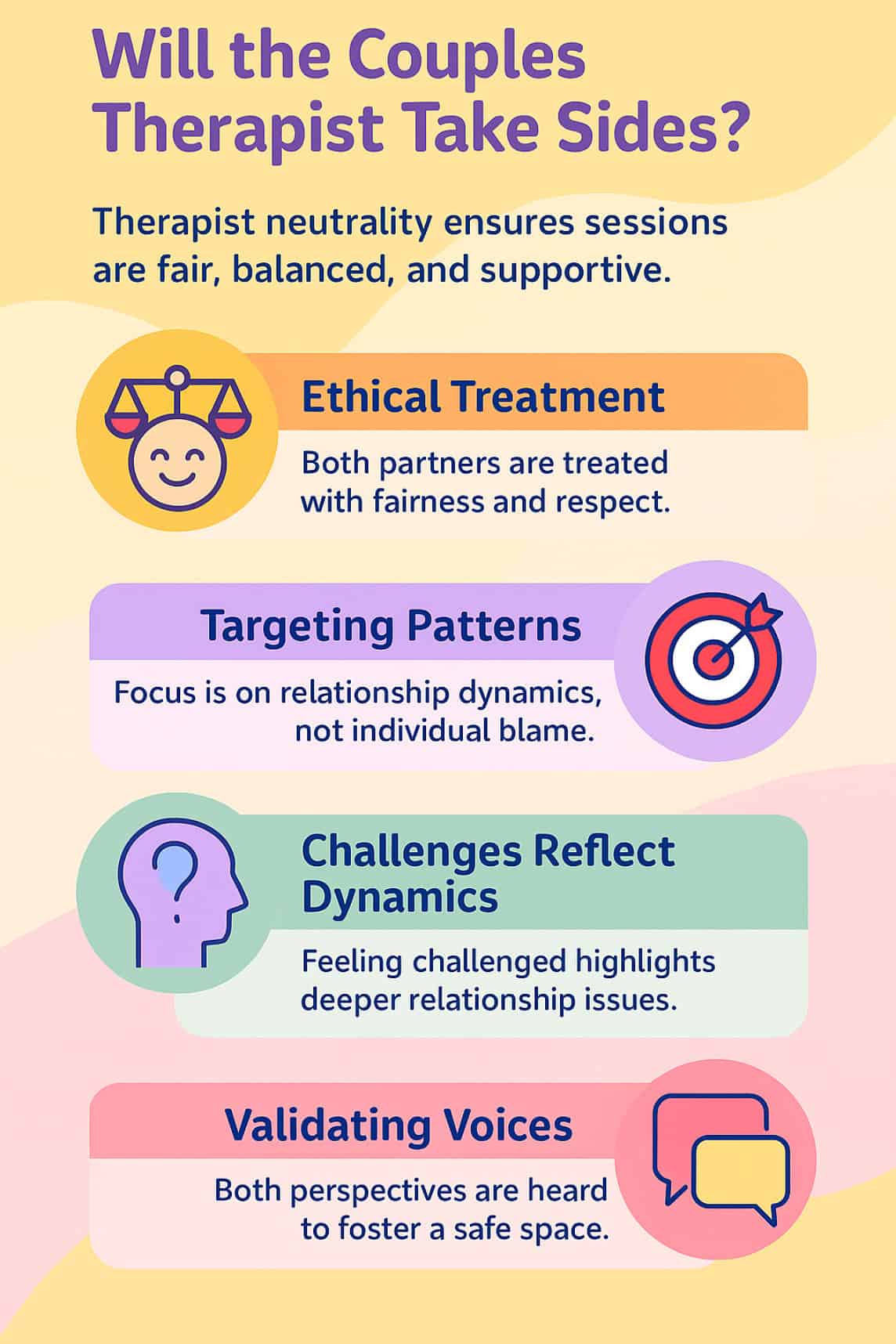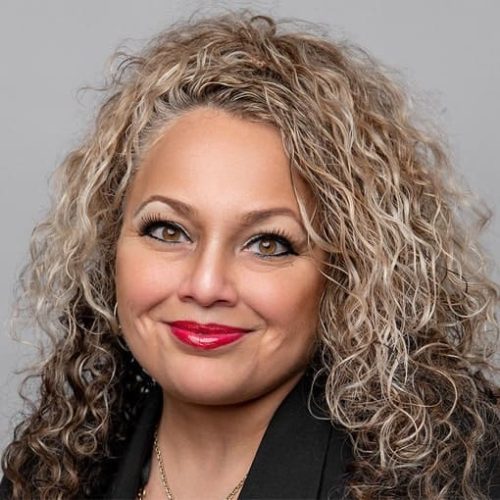
Key Takeaways for Couples Therapist Neutrality.
- Therapist neutrality is a core ethical principle, ensuring both partners are treated with fairness and respect.
- Counsellors focus on relationship patterns, not individual blame, helping both people understand their roles and contributions.
- Feeling challenged isn’t bias, it often reflects deeper dynamics that need addressing.
- Both voices are heard, and each partner’s perspective is validated to create a safe, productive space.
- Skilled therapists aim to strengthen the relationship, not divide it.
👉 Ready to take the next step? learn more about couples counselling at AERCS and book your free 15-minute phone consultation.

No, a trained couples counsellor practises therapist neutrality, meaning the therapist stays impartial, focuses on the relationship dynamic, and refuses to champion one partner over the other. You might feel challenged at times, but that reflects unhealthy patterns being called out, not bias against you.
Why Therapist Neutrality Matters.
Protecting Emotional Safety.
When both partners trust the counsellor to stay neutral, they speak more openly and make faster progress.
Keeping the Focus on the “We”.
Impartial guidance shifts attention from blaming each other to fixing the patterns that keep you stuck.
How Neutrality Works in Real Sessions.
- Equal Talk Time:
Your counsellor tracks who speaks and gently invites the quieter partner to share. - Clarifying Questions:
They rephrase your statements to avoid assumptions and reduce defensiveness. - Systemic Lens:
Instead of asking who is right, the therapist asks, “How does this behaviour affect the bond?”
When a Partner Feels Targeted.
One partner may feel the spotlight if their behaviour harms the relationship more, for example, shutting down or using criticism.
What to remember:
- The therapist is addressing the pattern, not attacking the person.
- You can say, “I feel judged right now.” A neutral therapist will slow down and validate your view.
What an Ethical Therapist Will Never Do.
| Action | Why It Violates Therapist Neutrality |
|---|---|
| Take private sides in secret | Undermines trust and blocks progress |
| Use sarcasm or shaming language | Creates unsafe environment |
| Impose personal values | Therapy must reflect your shared goals |
How You Can Support Neutrality.
- Answer honestly even if it feels awkward.
- Avoid “win-lose” language like “See, I told you!”
- Stay curious when feedback feels uncomfortable. Ask, “Can you explain that pattern again?”
- Check in during sessions if you sense bias.
Choosing a Neutral Therapist in Toronto and the GTA.
- Look for credentials such as RCC, RP, or RSW and couples specific training like the Gottman Method.
- Ask in the consult call, “How do you maintain therapist neutrality?”
- Read reviews that mention fairness and balanced dialogue.
Neutrality Builds Trust.
Ethical counsellors use therapist neutrality to balance both voices, validate feelings, and correct unhealthy habits without blame. If you want that impartial guidance for a healthier connection, visit our Couples Counselling page or book your complimentary 15 minute phone consultation today.
What does therapist neutrality mean in couples counselling?
Therapist neutrality means the counsellor stays impartial, guiding both partners fairly and focusing on the relationship dynamic instead of individual blame.
Can therapist neutrality still feel challenging?
Yes, therapist neutrality can feel tough when your behaviour is examined, but the goal is to correct patterns, not shame you.
How does therapist neutrality improve results?
Therapist neutrality builds trust so both partners share openly, allowing the counsellor to create effective strategies that work for the relationship.
What if I think therapist neutrality is missing?
Tell the counsellor immediately. Ethical practice requires therapist neutrality and they will adjust methods to restore balance.
Does therapist neutrality mean the counsellor never gives direct feedback?
No, therapist neutrality allows direct feedback on harmful patterns, yet the counsellor frames it respectfully for both partners.
Do You Need Couples Counselling?
Answer these 10 questions to see if a few sessions could help strengthen your relationship.
Note: This questionnaire is educational only and does not replace a clinical assessment. If you wish to obtain professional guidance, please follow up with a licensed mental health professional.

